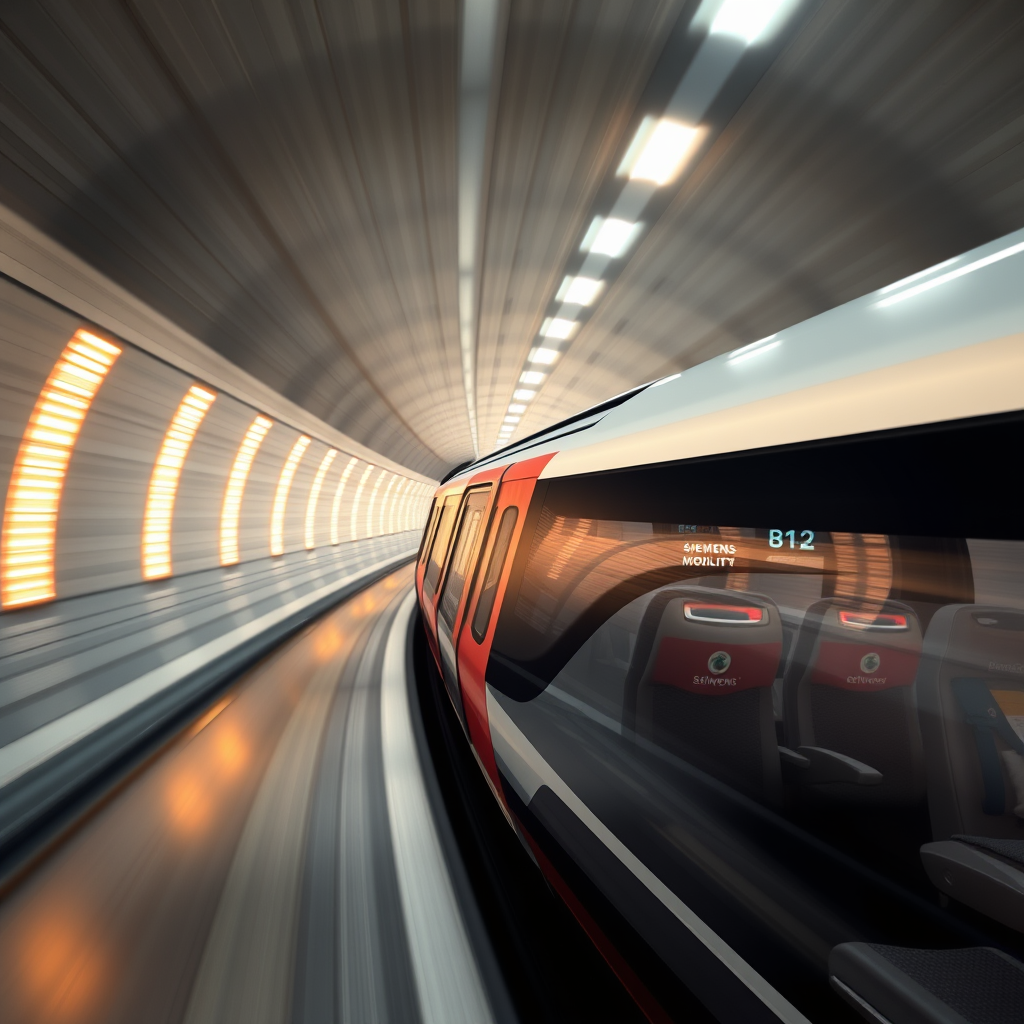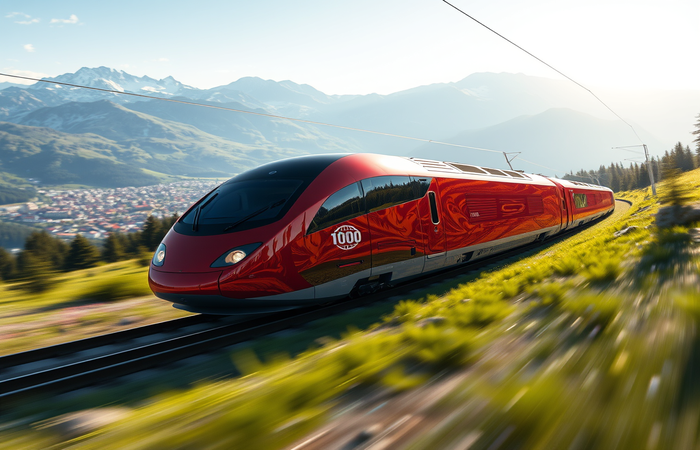Go-Ahead Expands: Bavaria’s New Rail Era

This article examines the significant expansion of Go-Ahead’s railway operations in Bavaria, Germany, focusing on the introduction of a new fleet of Siemens Desiro HC (High Capacity) double-decker electric trains. The deployment of these modern, high-capacity trains marks a substantial investment in improving passenger rail services within the Munich metropolitan area and beyond. This expansion represents a key development in the competitive German railway landscape, challenging the dominance of Deutsche Bahn (DB) and highlighting the increasing role of private operators in providing efficient and reliable public transportation. We will delve into the specifics of the new rolling stock, the operational implications of this contract, and the broader context of the evolving German rail market. The analysis will explore the technological advancements present in the new Siemens trains, their impact on passenger experience, and the strategic implications for Go-Ahead and the competitive dynamics of the German rail industry. Finally, we will consider the potential long-term effects of this expansion on regional transportation and economic development.
Go-Ahead’s Bavarian Expansion: A New Era in Regional Rail
Go-Ahead’s recent contract award to operate six new routes in Bavaria, commencing December 2022, signifies a considerable expansion of its German operations. This undertaking involves the deployment of 56 state-of-the-art Siemens Desiro HC double-decker electric multiple units (EMU), capable of carrying up to 1076 passengers when coupled. This represents a significant increase in capacity compared to previous services on these routes, previously operated by Deutsche Bahn (DB). The 12-year contract underlines a commitment to long-term service improvements and signifies a growing confidence in Go-Ahead’s ability to provide reliable and efficient rail services in the German market. The selection of Siemens Desiro HC trains, known for their reliability and passenger comfort, underscores a commitment to providing a superior passenger experience.
Technological Advancements and Passenger Experience
The Siemens Desiro HC trains are not simply larger; they incorporate numerous technological advancements designed to enhance the passenger experience. Features such as modern interiors, improved accessibility for passengers with disabilities, and increased seating capacity address key concerns of modern commuters. The inclusion of ample space for bicycles, prams, and luggage caters to the diverse needs of passengers, while the provision of Wi-Fi (planned for implementation next year) aligns with increasing passenger expectations for connectivity during travel. The incorporation of sockets and tables further enhances passenger comfort and productivity during longer journeys. These features combine to create a more comfortable and efficient travel experience, potentially increasing ridership and setting a new standard for regional rail services in Bavaria.
Operational Efficiency and Network Integration
The new network, covering 71 stations and operating 7.6 million train kilometers annually, requires sophisticated operational planning and management. Go-Ahead’s deployment of these high-capacity trains aims to improve service reliability and frequency. By optimizing train scheduling and utilizing the increased capacity of the Desiro HC units, Go-Ahead can better manage passenger flow, reduce crowding, and provide more efficient connections within the Munich area and beyond. The integration of the new services with existing infrastructure presents a significant operational challenge, requiring seamless coordination with other rail operators and infrastructure providers to ensure on-time performance and smooth passenger transfers.
Competitive Landscape and Future Implications
Go-Ahead’s expansion into Bavaria intensifies competition within the German railway market, traditionally dominated by Deutsche Bahn. This increased competition fosters innovation and drives improvements in service quality, leading to benefits for passengers. The success of Go-Ahead’s Bavarian operation will likely influence future tendering processes and could encourage further investment in private rail operators across Germany. The long-term success of this venture could signify a shift towards a more diverse and competitive rail market, ultimately benefiting consumers through improved services, better value, and increased innovation.
Conclusions
Go-Ahead’s significant investment in the Bavarian rail network, marked by the introduction of 56 new Siemens Desiro HC double-decker EMUs, represents a major development in the German railway landscape. This expansion highlights the growing importance of private rail operators and the increasing competition to Deutsche Bahn. The deployment of modern, high-capacity trains with improved passenger amenities demonstrates a commitment to enhancing the passenger experience and improving service reliability. The success of this venture hinges on effective operational management and seamless integration with existing infrastructure. The incorporation of technological advancements, such as Wi-Fi and improved accessibility, aims to attract a wider range of passengers, boosting ridership and potentially setting a new benchmark for regional rail services. The long-term implications for the German rail market are significant, potentially leading to increased competition, innovation, and ultimately, a more efficient and passenger-focused rail system. The success of this initiative will undoubtedly influence future rail contracts and investment decisions, driving the ongoing evolution of the German rail industry towards a more customer-centric and commercially competitive model. The expansion of Go-Ahead in Bavaria serves as a case study for the successful integration of private operators into established rail systems, showcasing the potential for enhanced service quality and efficiency through competition and modernization.




